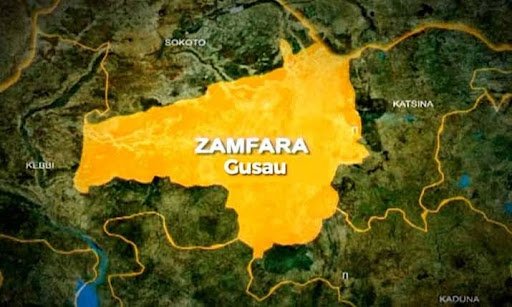A devastating malnutrition crisis is surfacing in Nigeria’s Zamfara State, where one out of every four children under the age of five in the Shinkafi and Zurmi areas is suffering from malnutrition, according to a recent screening conducted by Médecins Sans Frontières (MSF) and the Ministry of Health.
Of the 97,149 children screened across 21 urban and rural locations in June, a staggering 27 percent were found to be acutely malnourished, with 5 percent suffering from severe acute malnutrition.
These alarming figures far exceed the World Health Organization’s (WHO) ‘critical level’ threshold for malnutrition prevalence. In response, MSF is urgently calling on health authorities, international organizations, and donors to intensify their efforts to address the escalating crisis in Zamfara State and across Northwest Nigeria—a region notably absent from the United Nations Humanitarian Response Plan.
The mass screening revealed that approximately 22 percent of children are moderately malnourished, yet the nutritional supplies necessary to treat these children, specifically ready-to-use therapeutic food (RUTF), have been unavailable since the start of the year due to UNICEF halting its supplies.
The lack of a humanitarian response to treat moderately malnourished children in Northwest Nigeria puts their lives at risk, as without immediate care, these children could progress to severe acute malnutrition, which threatens their survival and long-term health.
“The screening results from Shinkafi and Zurmi are nothing short of alarming, revealing a catastrophic malnutrition crisis across Northwest Nigeria”
“The response to this overwhelming disaster is grossly insufficient. With malnutrition rates soaring beyond critical levels and no immediate treatment available for moderate acute malnutrition apart from at MSF facilities, we’re effectively letting more children fall into life-threatening conditions. It is crucial we ensure every child receives the medical care they desperately need” said Abdullahi Mohammad, an MSF representative in Nigeria.
MSF currently operates four inpatient and 17 outpatient facilities in Shinkafi, Zurmi, Gummi, and Talata Mafara, all located within Zamfara State, which has been severely affected by malnutrition.
From January to July 2024, MSF teams treated over 7,000 children across the four inpatient facilities—a 34 percent increase compared to the same period in 2023. In Shinkafi and Zurmi, where the recent malnutrition screening took place, admissions have risen by 50 percent compared to last year. At the Gummi facility, admissions in July 2024 nearly doubled compared to the same month in 2023.
Alongside the significant rise in malnutrition cases, MSF teams have also seen high numbers of children suffering from vaccine-preventable diseases, such as measles. So far this year, at least 5,700 cases of measles have been treated by MSF in Zamfara.
Infectious diseases like measles, malaria, and acute watery diarrhea severely compromise children’s nutritional status, and malnutrition, in turn, makes them more susceptible to these illnesses, increasing their risk of death.
“When I first brought my son into the hospital, I didn’t know if he would survive,” said Hafsat Lawal, a mother whose child is being treated for malnutrition at an MSF facility in Zamfara. “Back at home, because of the insecurity, we don’t have food. The prices of food have more than doubled. If we had money, we would have bought some grains, but we cannot.”
Communities in Zamfara are facing high levels of violence and insecurity, which has severely limited their access to functioning healthcare facilities. Health authorities estimate that as of 2023, only about 200 of the 700 healthcare centers in Zamfara are accessible, with the remainder being non-functional, largely due to the challenges faced by healthcare workers in reaching these areas.
Despite the ongoing humanitarian crisis and the high levels of insecurity, communities in Northwest Nigeria have long been excluded from coordinated humanitarian responses. MSF emphasizes the urgent need for health authorities, international organizations, and donors to scale up their efforts.
An immediate expansion of health facilities is necessary to treat malnourished children, ensuring that more hospitals can provide the inpatient care needed to save lives. Additionally, UNICEF, as the primary supplier of RUTF, must ensure the consistent and sufficient delivery of these essential therapeutic foods to prevent more children from falling victim to this crisis.


